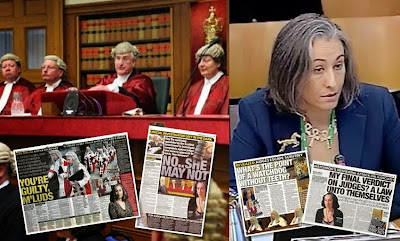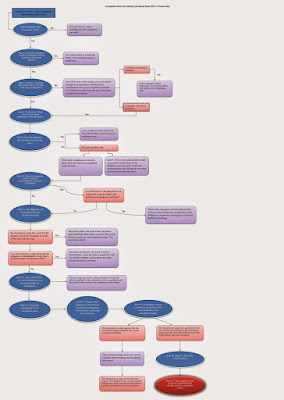 Lawyers investigating their own criticised by regulator. LESS than a week after the Scottish Legal Complaints Commission (SLCC) announced Law Society of Scotland insider Neil Stevenson as their latest Chief Executive, the pro-lawyer regulator has released a report calling for more transparent processes in the Law Society’s handling of complaints where lawyers investigate themselves.
Lawyers investigating their own criticised by regulator. LESS than a week after the Scottish Legal Complaints Commission (SLCC) announced Law Society of Scotland insider Neil Stevenson as their latest Chief Executive, the pro-lawyer regulator has released a report calling for more transparent processes in the Law Society’s handling of complaints where lawyers investigate themselves.
The report - compiled before the Law Society took back control of the ‘independent’ SLCC last week - analyses trends in how the Law Society of Scotland handle conduct complaints about solicitors from 2009 to 2014.
Conduct complaints about Scottish solicitors: Trend analysis report, draws attention to trends in:
the numbers of conduct complaints;
the timescales involved in investigations; and complaint outcomes.
It also covers the two different outcomes available to the Law Society of Scotland’s Professional Conduct Committees when they uphold a conduct complaint - Unsatisfactory Professional Conduct and potential Professional Misconduct.
The report reveals that although conduct complaint numbers and timescales are generally decreasing, on average, hybrid complaints – those which incorporate elements of both conduct and inadequate service – take 2 years to be dealt with. This increases to 3 years if a prosecution against the solicitor for Professional Misconduct is then raised at the Scottish Solicitors’ Discipline Tribunal.
Whilst the number of decisions being made by the Law Society of Scotland and the number of complaints upheld is steadily increasing, the level of compensation, fines and training orders remains low. Compensation, fines and training orders are all available as sanctions when the Law Society of Scotland Committees uphold a complaint as Unsatisfactory Professional Conduct. Although there is a tariff and written guidance relating to compensation, no guidance exists for levels of fines. Neither the compensation guidance nor the Unsatisfactory Professional Conduct decisions are made available to the public.
If the complaint is upheld by a Committee as potentially being Professional Misconduct, the Law Society of Scotland appoints a fiscal (usually a solicitor) to prosecute the solicitor named in the complaint at the Scottish Solicitors Discipline Tribunal. In at least 13 instances, the fiscal referred the complaint back to the Committee for the decision to be reconsidered. The SLCC said they question whether it is right that the Law Society of Scotland Committee subsequently revisits its decision – based on the advice of one individual, the fiscal.
 In the report the SLCC recommends that the Law Society of Scotland:-
In the report the SLCC recommends that the Law Society of Scotland:-
* Considers fast-tracking certain types of complaints.
* Continues to work with the SLCC to improve the effectiveness and efficiency of complaint handling, particularly in relation to hybrid complaints.
* Reviews the consistency of sanction awards.
* Revises and publishes written guidance and/or a tariff for Unsatisfactory Professional Conduct sanctions.
* Considers publishing information in relation to Unsatisfactory Professional Conduct decisions.
* Reviews the involvement of the fiscal in the determination process and remitting complaints back for secondary decisions.
The report follows a previous report on trends in service complaints.
Under the Legal Profession and Legal Aid (Scotland) Act 2007, the SLCC is the ‘independent’ single gateway for complaints about solicitors and other legal practitioners in Scotland, complaints about conduct are then referred to the professional bodies to investigate – leading to lawyers investigating their own colleagues – even when evidence of law breaking is uncovered.
In addition to investigating complaints about inadequate service by solicitors and firms, the SLCC – which has cost Scots clients a staggering £20 million plus since 2008 - has a role in investigating “handling complaints” – complaints about the professional bodies’ investigations – and in monitoring trends in complaints.
The SLCC has done little to curb the excessively pro-lawyer conduct of Law Society investigations and has had little effect at the Scottish Solicitors Discipline Tribunal (SSDT) – at one stage being criticised by the SSDT for not presenting enough cases for prosecution.







